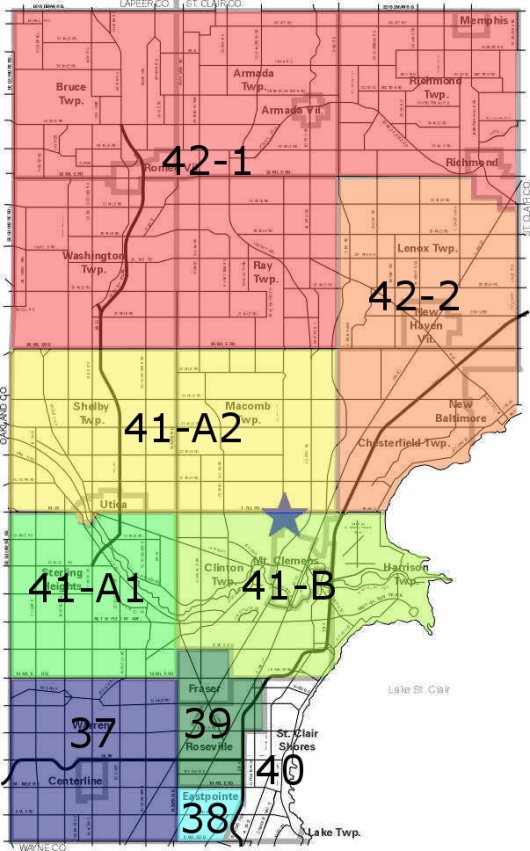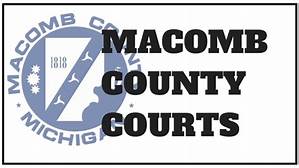“Assault with a Dangerous Weapon” – Up to 4 Years in prison
Defending Domestic Violence, Assault with a Dangerous Weapon, Assault by Strangulation in Macomb County
As you read through this, it is important for you to know that ALL criminal charges are pursued by “THE GOVERNMENT”. It is the ALWAYS “the state” that prosecutes individuals for violating laws within the state’s jurisdiction. The state does so by utilizing state prosecutors (attorney general), county prosecutors and municipal prosecutors to enforce the laws which are in place to protect property and people in our state under the theory that individuals do not have the resources to go after those that commit crimes to the extent that the government does. The state uses it law enforcement agencies to investigate crimes and manage the movement of prisoners to courts. The court has vast powers to set bond, impose no-contact orders and order witnesses to appear in court through its subpoena powers. For this reason and other public policy reasons, it is difficult for a victim to get a case dismissed that is “in the system”. Getting a sharp local criminal defense lawyer is your best course of action to get a case under control when a victim does not want to cooperate.
List of Michigan Assault/Domestic Violence Crimes and Maximum Penalty
According to Michigan Crime Statistics, over 100,000 assault crimes occur each year in the State of Michigan. The MICR breaks down the types of assaults with over 30,000 assaults involving a deadly weapon and over 60,000 as domestic violence. Crimes are classified in Michigan as felonies or misdemeanors. A felony is considered a more serious offense and is defined as a crime that can carry more than one (1) year in jail – up to life in prison. A misdemeanor is a less serious crime that is defined as a crime that can carry a maximum of one (1) year in jail. Assault with a deadly weapon is a felony.
The following is a partial list of misdemeanor and felony assault crimes as contained in the Michigan Penal Code:
Misdemeanor Assault Crimes Maximum Punishment
- Assault & Battery: 93 days jail
- Domestic Violence: 93 days jail
- Aggravated Assault: 1 year jail
- Aggravated Domestic Violence: 1 year jail
Felony Assault Crimes Maximum Punishment
- Assault with a Dangerous Weapon (ADW): 4 years prison
- Felony Domestic Violence (3rd Offense): 5 years prison
- Assault with Intent to do Great Bodily Harm: 10 years prison
- Assault by Strangulation: 10 years prison
- Assault with Intent to Murder: Up to life in prison
Once an assault crime is on your record, it can lead to devastating consequences that will last a lifetime. In this publication, we will discuss ways that to successfully defend assault crimes against all odds and how to dodge felony convictions. We will also discuss situations whereby an alleged victim or injured party wants the case dismissed or fails to appear for a trial.
Assault with a Dangerous Weapon: A pool stick, car, or dangerous object can be considered a deadly weapon!
Threatening another person with an object during an altercation (assault with a deadly weapon) can result in serious felony charges. Assault with a dangerous weapon (ADW), aka felonious assault, involves the threat or use of force, with a conventional weapon (knife, gun, ), or with an object that is capable of being used as a deadly weapon (golf club, bat, pool stick, car), putting another person in fear of an assault with or without making actual physical contact with the other person. Assault with a deadly weapon is consistently one of the most prevalent felony crimes in Macomb County Courts. Assault with a dangerous weapon is a serious felony which is punishable by up to 4 years in prison. Actual physical contact or an injury is not required.
Assault by Strangulation or Suffocation: Punishable by up to 10 years in prison!
This charge is more common than you would think. The statute defines assault by strangulation or suffocation as an assault that impedes normal breathing or circulation of the blood by applying pressure on the throat or neck or by blocking the nose or mouth of another person. Assault by strangulation or suffocation (MCL 750.84) is a felony which carries up to 10 years in prison. This offense arises most often in domestic altercations. Placing someone in a choke-hold or grabbing someone by the throat can constitute an assault by strangulation. There is very little proof required to pursue this charge. There is no requirement of medical attention or an actual injury to pursue a charge of assault by strangulation. All that is required is a statement by the victim that he or she was choked and unable to breath momentary. The statement may be one that is made during the 911 call and is recorded or a statement that is made during the police investigation. The alleged victim may have exaggerated the episode and an innocent party winds up being charged with a serious felony. The assault crime defense lawyer can usually find a way to avoid a felony conviction and jail time. Getting the victim on board to drop the charges is the best way to get the case under control. It can be very delicate, but there is usually a way to reach the alleged victim even if a “no-contact order” is in place. If the victim does not want to testify, the defense attorney will encourage the victim to contact the prosecutor. Don’t just take a plea deal when your life is on the line. Getting a local experienced Macomb County criminal defense attorney is your best course of action if you are charged with a misdemeanor assault, felony assault or domestic violence.
The initial arrest, bond conditions and the next step in a domestic violence case
If you are arrested for an assault or domestic violence crime, do not resist or say anything to the police except: “I’m exercising my right constitutional right to remain silent.” Asking the police officer if you can contact a lawyer (from your home or cell phone) is not an unreasonable request. The arresting officer may or may not allow for you to make a phone call. At your earliest opportunity, you or a family member should contact a lawyer for guidance. Being detained will seem like a lifetime but be assured that at some point a bond will be set and bond conditions imposed. The bond will usually require that money be posted with the court or with a bondsman. Typical bond conditions include:
- No contact, direct or indirect, with the alleged victim.
- Random testing for drugs and/or alcohol.
- No travel outside of Michigan without court approval.
MOTION TO REDUCE BOND: You have a better chance to get a low cash bond or a personal bond with an attorney present at your arraignment/bond hearing. However, it is not always possible to get a lawyer on such short notice. Should the court set an unreasonably high bond, a motion for bond modification can be filed to reduce bond and/or request modifications of any bond conditions. .
NO-CONTACT: You may not be able to return to your own house! If you have been living with the alleged victim and the alleged victim remains in the home, you may not be allowed to return to the home if a no-contact order is in place. Of course, this scenario has ridiculous implications for someone that has nowhere else to live, does not have access to clothes or other necessities. A police escort may be requested to gain access to the home for personal belongings. If the other person is not on the title and refuses to vacate the home, an eviction may need to be filed to regain possession. The eviction process can take several days or months, depending upon the circumstances.
TESTING FOR DRUGS AND ALCOHOL: Alcohol, drugs or mental health are often a factor in domestic violence cases. For this reason, drug and alcohol testing is often ordered as a condition of bond and release from jail. There are various forms of testing which include: random testing for drugs and alcohol, wearing an ankle alcohol monitor (SCRAM), carrying a device that requires alcohol testing at various intervals (SoberLink).
Parenting time with minors: Parenting time will be difficult and sometimes impossible while a no-contact order is place. If the domestic violence case is viewed as extreme in the eyes of the court, parenting time may be halted until the accused party is cleared for visitation by professionals and the court. The court handling the domestic violence case may allow limited contact with the alleged victim for purpose of transacting parenting time. Many times, parenting time must be re-visited at the court with underlying jurisdiction over child custody.
Getting a lawyer: Hiring a lawyer is a daunting experience but can be made less painful by getting a local criminal defense lawyer that can clearly explain your options and give you straight forward information about legal fees.
What if the alleged victim does not want to testify and wants the case dismissed?
In more than fifty (50%) percent of the domestic violence cases that our criminal defense law firm handles, the alleged victim does not want to pursue the charges and wants the case dismissed. The problem is that the victim does not know how to go about contacting the prosecutor and the prosecutor may not be receptive to dismissing the case. In addition, there are policy reasons that make it difficult to get a domestic violence case dropped as we explain in another publication. The criminal defense may be unable to speak to the alleged victim because of a “no-contact order” and doesn’t want to accused of witness tampering pursuant to MCL 750.122. An alleged victim that wants to change a police report may face charges for filing a false police report if the second report is different than the first report. The alleged victim may also be threatened to be held in contempt of court for failure to comply with a subpoena (order to appear for a hearing to testify).
Under certain circumstances, the prosecutor may attempt to proceed without the alleged victim by introducing the statements of the alleged victim which were made during the criminal investigation. The prosecutor should expect strong objections from defense counsel in this scenario based upon the hearsay evidence rules and the Confrontation Clause of the Constitution.
There are serious legal complexities involved in cases where the alleged victim wants to dismiss an assault charge or does not want to testify at trial. The alleged victim may consider hiring independent counsel for representation to avoid any communications with the prosecution and determine if taking the Fifth Amendment (right to remain silent) is a viable way to proceed and for answers to these questions:
- Will the alleged victim be held in contempt of court and face jail upon failure to appear at trial or a hearing to testify?
- Can the alleged victim be charged with a crime for changing the story about what happened?
- Can charges be filed against a person that tells the alleged victim not to appear at court (witness tampering or intimidation)?
It takes the skills of an experienced criminal defense lawyer to navigate all of the legal issues that can arise in situations such as this. After the arraignment, a pretrial conference will be held for a misdemeanor or a probable cause conference will be held for a felony. It is at these proceedings where most domestic violence cases are resolved, the charges are lowered or dismissed, and we can get our clients out of the broken court system.
Assault and Domestic Violence Strategies: Avoiding Conviction, Jail, Record
A person charged with an domestic violence or any assault related crime has many concerns including:
- Can a conviction be avoided?
- Can jail be avoided?
- Can a felony conviction be avoided?
- Can a no-contact order be lifted?
- Can probation be modified, terminated, reduced?
- Can alcohol or drug testing be avoided?
There are several factors that can influence the outcome of an assault charge, including:
- Prior criminal record of the accused.
- Any injuries to the alleged victim.
- Prior assaultive history of the alleged victim.
- Whether the accused acted in self-defense.
- Whether any drugs or alcohol are involved.
- Whether the alleged victim will agree to a plea bargain.
- Whether the alleged victim will testify at the preliminary examination or trial.
- Whether the alleged victim claims any losses (restitution).
- Whether the prosecutor has a ‘no plea bargain’ policy.
Getting a Domestic Violence Under Control, Dismissed, Avoiding a Felony Conviction
Getting charged with domestic violence doesn’t mean that you will be convicted of domestic violence. There are a number of options to get a domestic violence under control. In defending clients charged with an assault crime, there are various outcomes that we have obtained to avert a conviction or felony record which include the following:
Youthful Offenders – HYTA: Getting the case dismissed for offenders age 18 to 25 pursuant to HYTA.
MCL 769.4a – Deferral: Getting a domestic violence case deferred (period of probation) and dismssed at the end of the deferral period.
Self- Defense: Arguing self defense during negotiations or at trial to fight for a dismissal or lesser charges.
Victim Will Not Testify: When the victim will not testify, the defense attorney will ask the judge to dismiss the case on various grounds.
Getting a felony reduced to a misdemeanor: When the prosecutor has a strong case and the victim is not willing to dismiss the charges, avoiding a felony conviction can be the best course of action.
Please browse our webpages and blogs that are dedicated to the topics of assault crimes:
Public Policy Reasons Make it Difficult to Get Domestic Violence Cases Dismissed
How Am I Being Charged With Domestic Violence / Assault When I Acted In Self-Defense?
When a Misdemeanor Assault or Domestic Violence Case Escalates to a Felony
 Michigan Criminal Lawyer Blog
Michigan Criminal Lawyer Blog




